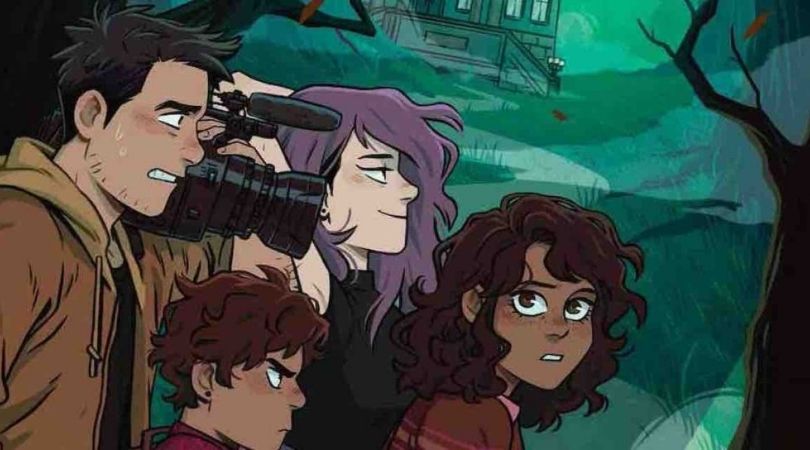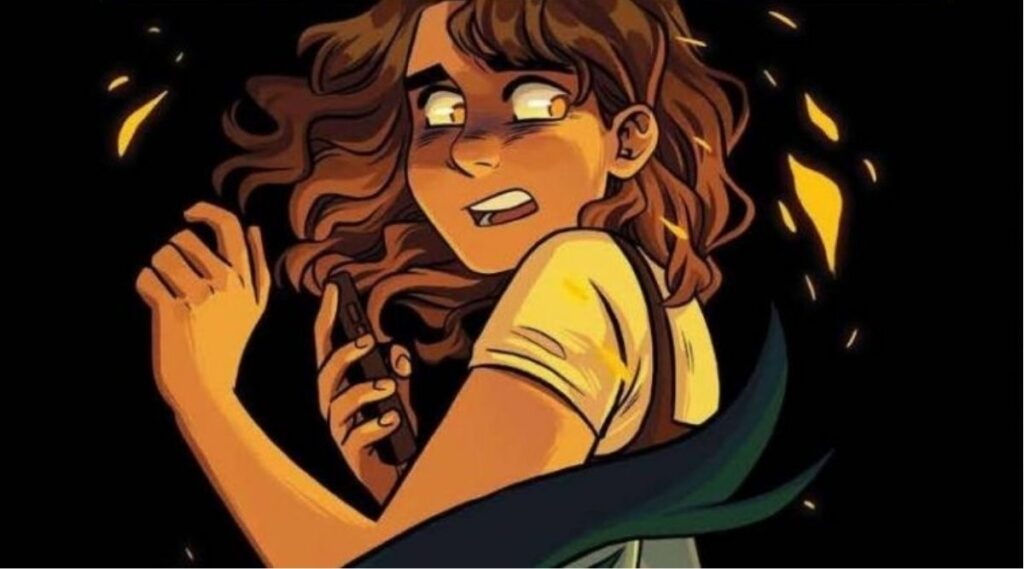Spoilers for Specter Inspectors
Queer representation in media is essential for so many reasons. For me though, personally, it’s important because it can be opportunities for folks who perceive themselves as cisgender or heterosexual to see themselves reflected in some aspect of queerness that perhaps they may never otherwise have seen or considered. Some part of me probably knew I was queer long before the rest of me did. I’m still struggling to even believe myself when I name it.
This Pride for me has been a month of grappling with more about myself than I thought fathomable even just a year ago. And truly, an essential part of my ability to contemplate my sexuality and my place in masculinity has been my reading of queer comics this past year. Books like Specter Inspectors, Lumberjanes, Girl Haven, Wynd, and many others have been a part of my process; indulging in kid-friendly, wholesome queer stories has allowed me more space to reflect on how I see myself in them.
I have particularly latched onto Specter Inspectors by Bowen McCurdy and Kaitlyn Musto, a limited series from BOOM! Studios imprint BOOM! Box featuring a group of friends who make videos hunting for ghosts and other paranormal activity. Noa and Astrid are in love but won’t say it out loud and Gus is non-binary, providing three great characters who provide various non-hegemonic identities. I spent just as much time reading this series thrilled by the overarching plot as I did adoring Astrid and Noa’s relationship. And in all this time reading about them and so many other characters I had been quietly thinking to myself about attraction meant to me too.

It doesn’t matter really where I’ve landed. I don’t owe anybody an answer and I’m not sure I’m ready to name it out loud yet. But Specter Inspectors #5, the series’ conclusion, has offered me the perfect framework for grappling with it when I am ready. In the series, Astrid is possessed by a demon who will only move on when somebody finally learns and speaks her lost name. The final sequence of the series sees Astrid and Noa offer the demon a different approach. Rather than waiting to discover her name, they choose to name her for themselves.
For the two of them, it’s a metaphor for how they can’t wait for their relationship to define itself. They have to go out and bravely name it themselves. As Noa and Astrid fight against demons, literal and metaphorical, the art in Specter Inspectors takes a dramatically different tone than ever before. Great horrors in blood-red fill the pages. But whenever Astrid reflects on what role she has to play in stopping bad things from happening, there’s serenity. And when the demon is named, it transforms into something unexpected, but still entirely beautiful.
For me though, it’s a metaphor for how a name for my identity isn’t going to just land in my lap. While it’s certainly no demon controlling my free will, if I want to release the emotional hold over myself preventing me from being completely and authentically who I am, I have to go out and name it myself.
Like the inSPOOKters, I’m afraid of that. I don’t know what it would look like. I don’t know what consequences there might be. And that’s fine. I don’t have to be ready. This is an excellent comic for showing that it’s okay to be afraid or reluctant. But when I am ready to claim a name for myself, Noa and Astrid’s strength and bravery in taking charge of their own destiny is how I have to do it too.
Reading queer media isn’t going to be the same experience for everyone. It’s affirming for some readers. It’s simply there for others. But I truly hope that more people like myself can have the opportunity to be exposed to as many forms of queer media as possible because you never know what identities or expressions you may find yourself reflected in. I didn’t pick up Specter Inspectors expecting to be moved by it. Yet here I am. And that is the power of representation and exposure.







